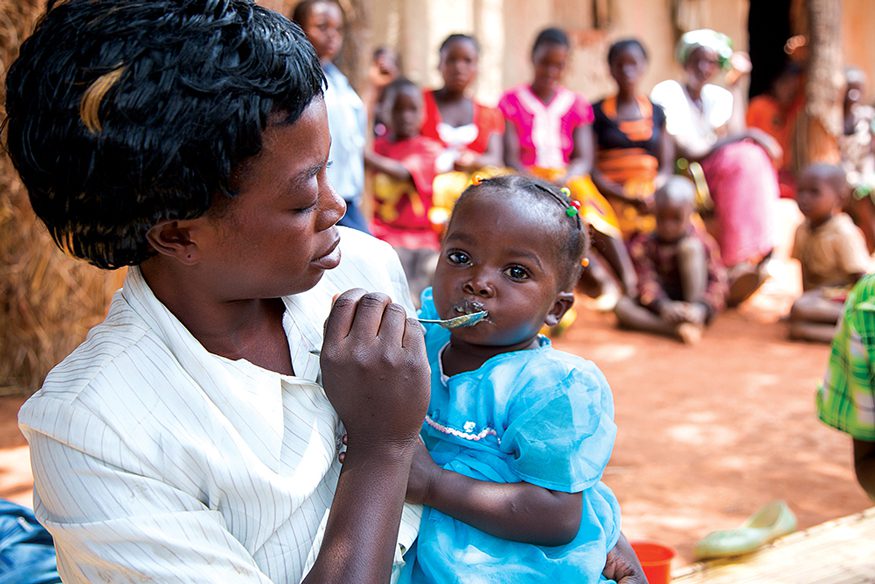By Dr. Agnes Aboum
In April, I led a World Council of Churches ecumenical racial-justice solidarity visit to the U.S. The visit began with a visit to Bread for the World’s offices in Washington, D.C. During the visit, I heard a term that was new to me: food desert. From my African and Kenyan context, a desert is a place where no or very little growth takes place when looked at from the surface; in other words, life is stifled.
So I was keen to understand what food deserts mean in a country and world of plenty. I learned that food deserts are places where people – especially the marginalized, poor, and people of African descent – find it expensive to use food stores where nutritious food is sold and are forced to opt for snacks and unhealthy foods from nearby stores, thereby jeopardizing their health and nutrition status.
Poverty and hunger exist in similar situations in the world where wealth exists. I believe that no one needs to be poor and that there is so much food that is wasted by millions of people while women and children from Africa and marginal communities in the Global North and South go hungry. This is one of the scandals of our human development that contradicts our faith while our Lord Jesus asks whether when he was hungry we fed him.
Studies show that agriculture and food production in Africa and the Global South is carried out at 70 percent to 80 percent by small-scale women farmers. Studies also show that many women and children die from malnutrition and poor nutrition. This makes maternal healthcare a priority issue. Ninety million children under the age of five and 795 million adults globally remain undernourished. Women die because of poverty and poor sanitation and lack of nutrition and adequate food.
In sum, although efforts by global leaders and countries to overcome poverty and hunger have been stepped up with the adoption of the Millennium Development Goals and now the Sustainable Development Goals, adopted by the United Nations in 2015, millions of women and children as well as other poor people still go hungry every day and live where poverty is still rampant. It is therefore important for women, especially pan-African women, to speak out and act against this injustice. An upcoming event – Pan-African Women of Faith: Lifting Our Voices and Votes to End Hunger and Poverty – is an opportunity to ensure that we are listening to the voices of pan-African women and working with them to end hunger and poverty – and not just for them. The World Council of Churches, in partnership with Bread for the World and the Office of the Dean of the Chapel at Howard University, is honored to be of service in this partnership to help end hunger and poverty in our world.
A member of the Anglican Church of Kenya, Dr. Agnes Aboum is the moderator of the World Council of Churches Central Committee (board of directors). She is the first woman and first African to be elected to this post.



